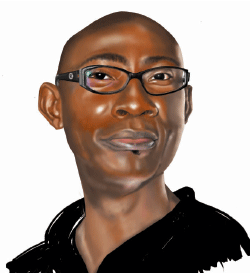Nigerians are indeed very good people when it comes to trivialising serious matters. Many can laugh you to scorn when you complain about a threatening challenge because they have developed the thick skin to tolerate all manner of problems.
Nigerians have different buffers or repellants for all sorts of things capable of weighing them down so long as they are in good health and spirits.
Those who came up with the hypothesis that Nigerians are the happiest people on earth may not be far from the truth going by our approach, nay nonchalant or unserious approach to intimidating problems.
Take for instance the recently public holidays declared by the federal government to mark the end of Ramadan fast by Muslims.
The government had earlier declared a two-day (Tuesday, July 5 and Wednesday, July 5 and 6) public holidays to enable Muslins celebrate.
But just as Nigerians were getting ready to round off the holiday on Tuesday and return to their businesses, the government said the holiday was now for Wednesday, July 6 and Thursday, July 7, explaining that the popular sighting of the moon that traditionally ends the Ramadan fast could not be ascertained before July 4.
The government extended the holiday to July 7 based on a report by the Sultan of Sokoto, Saad Abubakar III, president general of the Nigerian Supreme Council for Islamic Affairs, which directed that the Ramadan fast be continued on July 5.
Trust Nigerians! In their usual suffering and smiling posture, they went about making fun of the extension, particularly the allusion that non-sighting of the symbolic moon was responsible.
The jesters were simply legion and you could come across all manner of jokes. Wives who could not serve their husbands lunch or dinner on time blamed it on the non-sighting of the moon, others gave the same reason for their delayed pregnancy delivery.
That was how we reduced to the sublime a very serious matter like the unplanned and ill-thought extension of the Eid-el-Fitr holiday with all the consequences on the economy and the polity.
For those who trivialised the cost of this decision by the government on our economy, for the three days of staying away from work by a workforce of 40 million Nigerians, the country has lost an estimated N500 billion.
For a state like Abia where Governor Okezie Ikpeazu, as a master stroke to pursue his case with Uche Ogah, declared public holidays in honour of the late Ojo Maduekwe for Monday, July 4, the prize the indigenes will pay economically if the three days the federal government gave as public holidays are added can only be imagined.
Nobody is opposed to observing public holidays on the days nationally and internationally recognised for such but should that be done in manners that inflict more harm on all of us?
A place like the Federal Capital Territory, Abuja, where civil servants, mainly Muslims, assume that work ends on Thursday (they disappear from offices by 12 noon on Fridays to pray in the mosque) so to say, the government granted them, though unintentionally, a four-day holiday.
When they added the Saturday being weekend, they were rolling with five work free days at the detriment of their employers.
It causes concern that when we laugh at our problems we turn back to seek who to blame.
I was even surprised that most of the private sector chieftains and operators who ought to be more concerned about their bottom line because of the extremely harsh business environment joined in the frivolity of sighting or non-sighting of the moon instead of calling a spade by its name.
It is amazing that a Muhammadu Buhari administration which is crying over paucity of funds to deal with mounting economic and social challenges casting a slur on his electoral promises to Nigerians would extend the public holiday.
I have never seen a country on a mission to pursue rat when its house is engulfed on fire. That is what this country under the leadership of our dear president simply did with the public holiday extension.
The question most people should be asking now is who is actually in charge of the levers of Nigerian power or government – Buhari, the Sultan or Internal Affairs Minister, Abdulrahman Dambazau?
The Trouble with Nigeria as the late world class writer, Chinua Achebe, observed is a potpourri of different kettles of fish.
When leaders make choices that promote their ethnic inclination, religious bias, political leaning, social standing and all sorts of rubbish, it becomes extremely impossible to come clean with populist-oriented policies and decisions that naturally promote common good and spur development.
The late military dictator, Sani Abacha, understood the huge losses Nigeria was recording observing public holidays on days outside of when they fall within, like on weekends, and put a stop to it.
But when an owambelous Olusegun Obasanjo became president, we returned to business as usual and the policy was reversed with the government declaring public holidays only on work days even when they originally fall on weekends.
An Igbo proverb says when a woman marries two husbands she will choose the better of the two.
Going by what Nigerians are passing through as regards the economy and what happened during the Abacha days, many would prefer that era to now, even though this is a democracy.
That is how bad things are, and how unpopular the economy has become that a leadership which understands the intricacies of modern economic dynamics should see a lack of management of time and space as detrimental to the economic and social upliftment of the people.
In this age and time, it is not the number of days we enjoy as public holidays that will solve our myriad of problems.
Rather, what will come to our economic and social aid is the sacrifice we make, which include cutting down on public holidays or outright rejection of them by reallocating that time to productive ventures. No time lost will ever be recovered.
No matter how many times we sight the moon, during or after Ramadan fast, it can never put food on the table of anyone. Ditto Christian related public holidays. After all, the Bible says prayer without faith and hard work is useless.
The worse thing that can happen to this country at this point in time is for us to bring back the old memories of some Nigerians not prepared to move with time as we saw when the North declined self-rule when the South indicated its readiness in the run up to independence in 1960.
What happened with the recent sighting of the moon and changing of the goal post for public holidays between the federal government and the Sultan is a sad reminder of what happened in 1953 when Anthony Enahoro moved the motion for self-government which suffered a setback because his Northern colleagues staged a walk out because they were not ready for independent rule.
One of the greatest drawbacks of this country is when some people do things at their own pace and not at the pace that benefits everybody.

- Advertisement -
- Advertisement -
Must Read
Relief for Dele Farotimi as Obi offers to fulfil bail conditions
Relief for Dele Farotimi as Obi offers to ensure the rule of law
By Jeph Ajobaju, Chief Copy Editor












